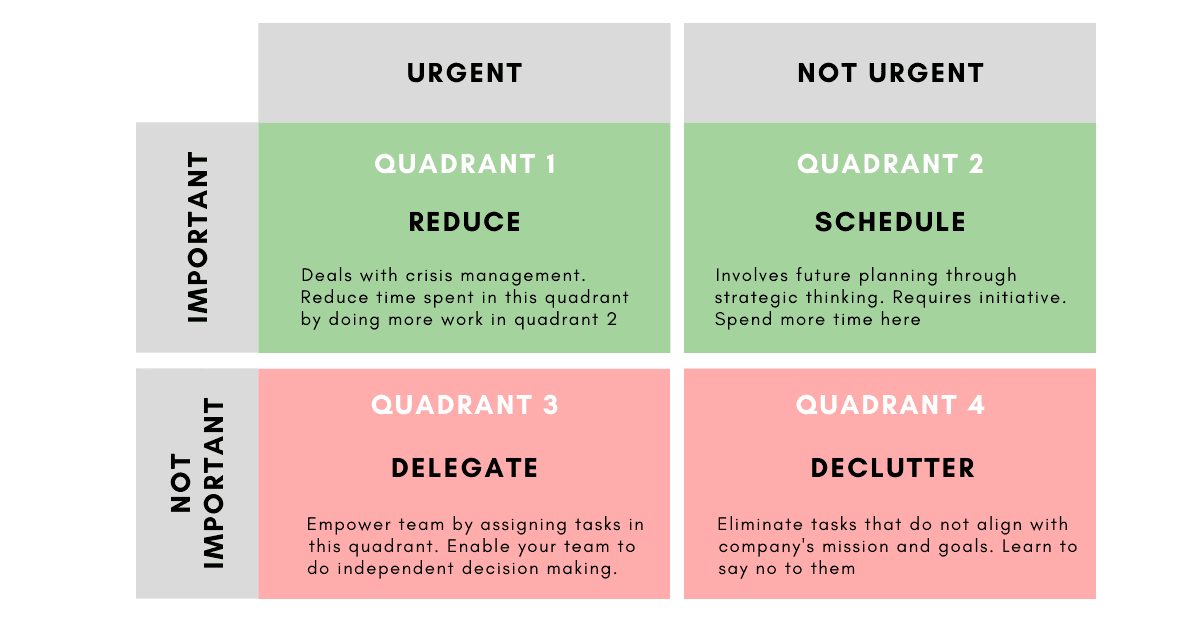The business is happily going, you have interesting ideas, but… You are overwhelmed business owner, so busy with something, you don’t even really know what, that you can’t realize them and scale up your business.
And to make matters worse, you are struggling with the so-called new normal (i.e. new and new restrictions, measures, rules, changes, but also huge opportunities).
I see it regularly. Successful entrepreneurs, owners of large and small businesses, will all feel relieved when they use a few (or at least one) of these strategies:
1. Step back
Take a deep breath and take a good look around. Unfocused decisions can be bad decisions. And since many people can’t calm down and detach until they get an accurate picture of the situation, it’s a good idea to take advantage of a third-party perspective. Often, meditation sessions, personal coaching sessions, sports, massage, something that will help relieve stress, or just bring the right perspective can help.
2. Analyze
What throws you off? When do you feel overwhelmed? How often? How and what do you do? What do you accumulate in? What would you need to subtract/pass on? Observe, record, and try to find patterns and triggers. (You can get help for this as well. In fact, you don’t have to be completely alone for anything! This is also a key lesson).
3. Proper Planning
Maybe you feel like you have to master everything from your to-do list (right now and on your own). I don’t think so. In the hurricane of duties and our own tasks, we often forget about the right prioritization. Often this is a problem associated with the inability to delegate, see below, or it can also be a consequence of adding without continuous removal. (An interesting book on this topic Subtract by Leidy Klotz).
But the Eisenhower Matrix still remains the simplest tool for prioritizing.

Hence the aforementioned delegation…
4. Delegate
For those who are still hesitating and keep rolling the familiar cliché “What can you not do yourself…” I have a simple mathematical example. How much does your time cost? How much does the assistant’s time cost? Can the assistant create a presentation for the client? Even if it takes her twice as much as it takes you, the cost of her salary is much lower than the cost of your time or the returns you can bring in at the same time.
The right people with the right skills can even be more expensive than your time if they deliver the results in less time and better quality.
5. Automation
A lot of things can be automatized, using the right programs and tools. By setting up the right workflows, you can still be productive and at ease. Unless it is strictly necessary (and here it is necessary to consider it) to be at each transfer of information, avoid it. Two things are important – that it runs like a wire and that at any moment you have the opportunity to know the current state, instantly, whether in the form of reports, monitoring, visualizations or verbal announcements from an authorized person (again, see delegation).
6. Focus
Delete yourself to limit multitasking to the lowest possible level, and if the hustle and bustle of your office are such that it cannot be 100% prevented, try to set aside time for deep work. You can start with short stretches and gradually lengthen them, you can alternate them in different ways, it depends on what and how you need. Someone helps music to fix on the job.
However, do not forget about transition time. Whether it’s moving between meetings, mentally retuning between tasks/activities, it takes a while. Keep this in mind when planning.
7. Off from work
Try to mentally disconnect from work when you are not in it, you are at home…, concentrate on the present moment, whether it is building a puzzle with children, playing golf, or other rest suitable for you. Stress is not healthy, and its increase can affect not only work performance, but also your health.
8. Fine-tuned Notifications
Not every beep is important. Social networks and other applications with their increasing notifications can easily disrupt concentration or even cause the urge to interrupt everything, at least mentally we have remorse “what if…, I have to answer him…” A few selected contacts/threads for urgent and high-priority cases and the rest to dampen. Set an hourly interval (or longer) to update emails, turn off most mobile networks. This is doubly true for the period of rest and sleep. Even today’s ubiquitous smartphones have a “bedtime mode”, which is excellent especially for those who are not willing to leave it in front of the bedroom door.
9. Frog
Perhaps we all know the wisdom “Eat that frog” >” that advises first to deal with the biggest/most unpleasant/bitter task. Not only is there no danger of further procrastination, but on the contrary, it will kick us. The feeling of overcoming something unpleasant and “fear-mongering” will give us energy, boost self-confidence and increase performance. And most importantly, it will reduce stress levels. A rolling stone always grows like a snowball.
10. Performance support
Whether it’s coaching, external help, a consultant/analyst, or hiring a partner with whom you can share responsibility, you will always be relieved – in the number of responsibilities, stress, time…
11. Be consistent
And not only on yourself but also on others. I know from my own experience that a common cause of the overload is non-compliance with deadlines in the lower chain. Establish the right strategy with a fixed deadline and stick to it and enforce it. It is important to set realistic (achievable) deadlines that are not very ambitious, and not to forget the reward (for yourself and the links of the chain = team) for timely, or even premature, fulfilment.
12. Correctly say no
An oft-repeated mantra to relieve stress and time. However, entrepreneurs know that if they refuse to work now, they may be without contracts in 18 months. The business owner takes a different approach. If it is a job case consider the following:
- Do I have the capacity to do that now?
- If not, can I outsource it?
- Is it worth it?
- Will it move me somewhere? (or does it just jam me?)
Knowing when to say yes and when to say no is a very important skill belonging to a successful business.
13. Forget about micromanagement
He has never testified and will never lead to good performance and productivity. Choose employees who know the field and cultivate leaders who will lead them to the desired results (Whether Henry hammers a nail with his left or right-hand does not matter).
14. Motivate and listen
When I mentioned strictness, I did not forget to mention the need for a reward after reaching a certain target. If you keep yourself and your team motivated, they will also perform well enough to focus on strategic things and release your overload. It’s the same with listening. You wouldn’t believe how much money and time you can save by listening to the people who are doing the job. It’s worth it!
Although these strategies are primarily aimed at the business owner, make no mistake, in principle they can also be applied to the operation of the entire company. The owner was at the birth of this company, the owner is the soul of this company, and what we will talk about, entrepreneurs have the DNA of the company so deep that they are one and as once they often function.
If you don’t drive your business, you will be driven out of business.
B.C.Forbes



Add a Comment